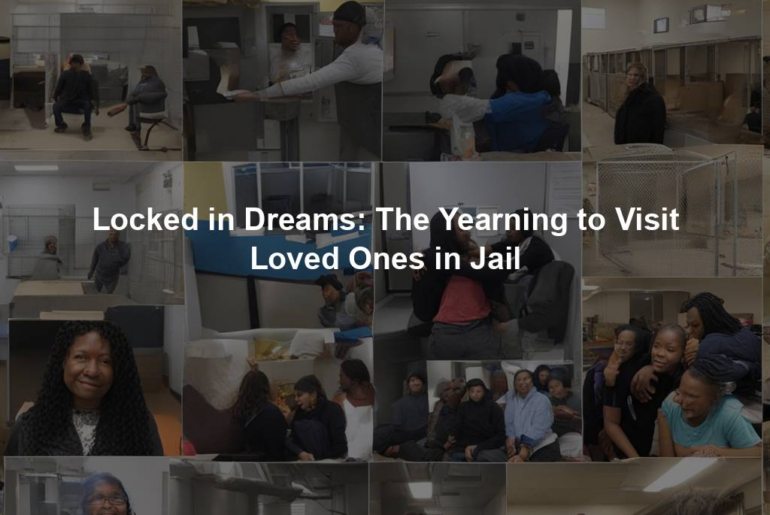When a loved one is incarcerated, it oftentimes feels as if both their freedom and ours have been unjustly taken away. The inability to visit and support them in person can leave us feeling consumed by a sense of helplessness and longing. Locked in dreams, we yearn for the opportunity to visit and connect with those we care about within the confines of jail.
Visitation Restrictions – Physical Barriers to Emotional Connection
Jails and prisons, designed to maintain security and order, impose strict visitation regulations that inadvertently prevent loved ones from sharing essential moments together. These limitations not only physically separate families and friends but also erect barriers against emotional connection and support.
Typically, visitation restrictions include limited time slots, often in cramped and sterile environments. These unwelcoming settings hinder the development of meaningful bonds and make it nearly impossible for incarcerated individuals and their loved ones to have genuine conversations. The inability to physically touch, hug, or hold hands with those we care about creates an emotional void that can only be left unfulfilled.
Also see – Dreaming About a Husband Going to Jail: Exploring the Hidden Meanings
The Impact of Separation on Mental Health
The yearning to visit loved ones in jail goes beyond simply missing their presence; it directly impacts our mental health. Human beings are social creatures wired for connection, compassion, and support. When this basic need for interpersonal connection is denied, individuals on both sides of the prison walls often experience profound feelings of loneliness, depression, and anxiety.
The power of physical contact and the reassurance it instills cannot be underestimated. These visits, albeit limited, provide a critical lifeline for incarcerated individuals. The hope of seeing a loved one or the knowledge that someone outside still cares, even under such restricted circumstances, can make a world of difference in their overall well-being.
The Need for Alternative Means of Connection
In the face of such limitations, finding alternative means of connection becomes crucial. Fortunately, advancements in technology have opened up new avenues for contact. Video visitation, for instance, allows individuals to see and interact with their loved ones through a screen. While it may not fully substitute physical presence, this digital interaction provides a sense of closeness that can alleviate the emotional burden faced by both parties.
Beyond the virtual realm, establishing and nurturing emotional connections through frequent phone calls, letters, and written correspondence is key. These communication channels maintain a sense of connection and can bridge the gap, even if temporarily, between those locked behind bars and those yearning to visit them.
The Importance of Support and Empathy
Locked in dreams, we long for the day when the criminal justice system reevaluates visitation restrictions in favor of fostering stronger familial and social ties. Recognizing the essential role that support and empathy play in the rehabilitation process can lead to a more compassionate approach to incarceration.
Furthermore, it is crucial for society to extend understanding and empathy to those affected by the separation caused by incarceration. Supporting each other through this challenging journey can provide solace and strength, inspiring hope for a future where visiting loved ones is no longer a dream but a reality.

